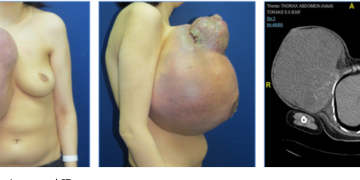EXECUTIVE SUMMARY
Complicated intra-abdominal infections (IAIs) remain a major
challenge in clinical practice. In addition to significant morbidity
and mortality for patients, they consume substantial hospital
resources. This is compounded by the potential misuse of antimicrobial
agents that may result in suboptimal treatment, as well
as encourage the selection and spread of antibiotic-resistant
microorganisms in the health care setting. The present guideline
was developed jointly by the Canadian Surgical Society (CSS)
and the Association of Medical Microbiology and Infectious
Disease (AMMI) Canada. The primary goal was to provide
updated recommendations for the medical and surgical management
of complicated IAIs since publication of the 2003 antimicrobial
treatment guideline by the Infectious Diseases Society
of America (IDSA) (1). Particular focus is directed at risk stratification
for poor outcome based on epidemiological studies, current
status of antimicrobial susceptibility and resistance profiles
among enteric pathogens, therapeutic efficacy of antimicrobial
regimens based on randomized clinical trials, operative versus
percutaneous approaches for source control, the role of intraabdominal
hypertension (IAH) and abdominal compartment
syndrome (ACS) in IAI, and infection control and preventive
measures for postoperative IAIs and surgical site infections. An
additional objective is to categorize the recommendations
according to the strength and quality of the available evidence
using a standardized grading system. Importantly, the current
guideline provides recommendations for initial empirical antimicrobial
management of complicated IAIs based on clinical
settings and issues unique to the Canadian health care system.
Summarized below are the key evidence-based recommendations
grouped according to the main sections discussed in more
detail in the guideline. Each recommendation is rated by the
strength of support (category A to C) and quality of evidence
(grade 1 to 3) as assessed by the working group of the guideline.
Key recommendations for risk assessment and stratification
Recommendation 1. Categorize the severity of illness by using the
Acute Physiology and Chronic Health Evaluation II (APACHE II)
score: low-moderate (lower than 15) or high (15 or greater) (A-2
evidence). Although the APACHE II scoring is infrequently
used clinically outside of the critical care setting at present, it
is recommended that physicians and surgeons consider introducing
it into clinical use in patients with IAIs. A user-friendly
APACHE II calculator can be found on the following Web site
Recommendation 2. Identify high-risk patients for poor outcome
by stratification according to community-acquired versus
health care-associated IAIs, previous antibiotic exposure, and
underlying comorbid conditions such as diabetes, severe cardiopulmonary
disease or immunosuppression (A-2 evidence)
Recommendation 3. Use the severity of illness score
(APACHE II) and other risk factors outlined above to plan
appropriate medical or surgical therapy, and for evaluating the
efficacy of different antimicrobial regimens for complicated
IAIs (A-2 evidence)
Key recommendations for microbiology and antimicrobial
susceptibility testing
Recommendation 4. Due to the predominance of certain virulent
pathogens in IAIs, the concept of ‘core’ pathogens is recommended
for planning initial empirical antimicrobial therapy
(A-2 evidence).
Recommendation 5. The microbiology of community-acquired
IAIs in the absence of previous antimicrobial exposure generally
consists of ‘core’ pathogens that are readily predictable (A-2
evidence). In such patients and particularly those with mild to
moderate severity of illness, routine bacteriological cultures of
abdominal fluid or pus and antibiotic susceptibility testing of
intra-abdominal isolates are optional and not routinely required
to guide empirical antimicrobial therapy. However, such cultures
may be useful for ongoing surveillance studies and generating
local epidemiological data regarding antimicrobial susceptibility
profiles and emerging resistance (A-2 evidence).
Recommendation 6. Patients with health care-associated IAIs
who have prolonged previous hospitalization (five days or more),
are severely ill (APACHE II score of 15 or greater) or have
received previous antimicrobial therapy (more than two days)
are at a greater risk for antimicrobial-resistant pathogens
source Chow et al
Can J Infect Dis Med Microbiol Vol 21 No 1 Spring 2010 11
1Division of Infectious Disease, Department of Medicine, University of British Columbia and Vancouver Hospital and Health Sciences Centre,
Vancouver, British Columbia; 2Division of Infectious Diseases, Department of Medicine, Queen’s University, Kingston; 3Department of
Surgery, University of Toronto, Toronto, Ontario; 4Department of Surgery, University of Calgary, Calgary, Alberta; 5Departments of
Pathology and Laboratory Medicine, University of Minnesota and Hennepin County Medical Center, Minnesota, USA; 6Department of
Medical Microbiology and Medicine, University of Manitoba, Winnipeg, Manitoba; 7Department of Infectious Diseases and Microbiology,
Hôspital Maisonneuve-Rosemont, University of Montreal, Montreal, Quebec
Endorsed by the Association of Medical Microbiology and Infectious Disease (AMMI) Canada and the Canadian Association of General Surgeons
(CAGS) Committee on Acute Care Surgery and Critical Care
Correspondence: Dr Anthony W Chow, Division of Infectious Disease, Department of Medicine, University of British Columbia, 769 Burley
Place, West Vancouver, British Columbia V7T 2A2. Telephone 604 926-4770, fax 604 926-4770, e-mail tonychow@interchange.ubc.ca
Hearing Loss. Save
Hearing is a gift.hearing is the ability to be able to listen to the external sounds. Hearing loss or hearing...








Discussion about this post